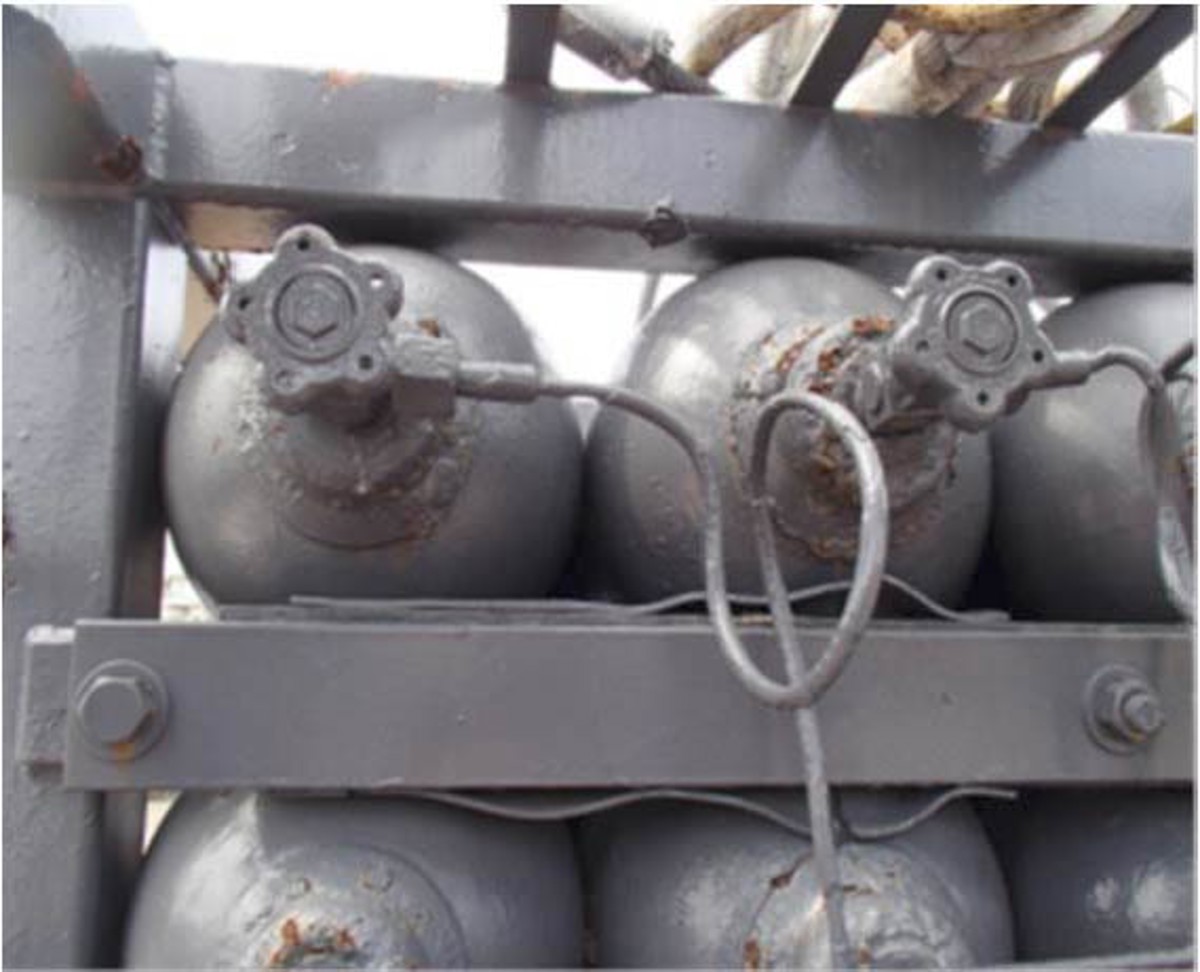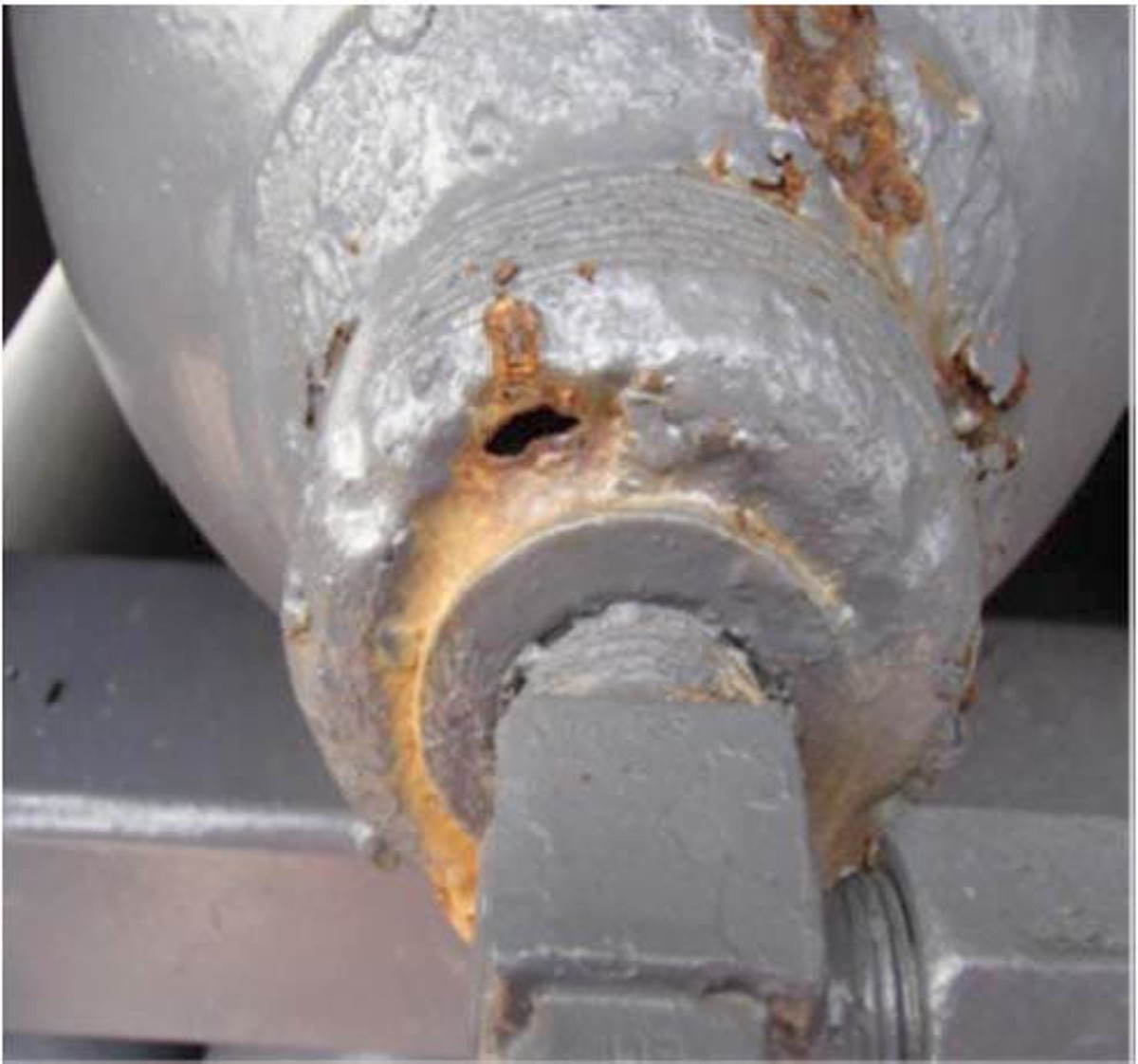Substandard nitrogen quads delivered to shipyard
- Safety Flash
- Published on 21 May 2013
- Generated on 12 July 2025
- IMCA SF 08/13
- 2 minute read
Jump to:
A Member has reported an incident in which two nitrogen quads were delivered in very poor condition to a vessel in a shipyard.
What happened?
Following delivery the quads were inspected, and observations were made regarding the amount of corrosion around the necks and valve areas of the bottles.
The nitrogen quads were immediately quarantined and removed to a safe area of the yard to await collection by the supplier.
Our member noted that:
- The quads were delivered by a company-approved supplier.
- The quads were delivered with a full certification pack.

corrosion and poor condition of gas quads as delivered

corrosion and poor condition of gas quads as delivered
Lessons learnt
Our Member drew the following conclusions:
- The incident highlights the importance of checking ALL equipment upon arrival and before use to ensure that it is fit for purpose.
- Certification documents ought not be used as proof that equipment is fit for purpose. Always check equipment.
- If equipment is found to be in unsafe condition on delivery, this should be reported and the necessary precautions taken to ensure that the equipment is not used until the defect has been rectified or other equipment supplied.
- Suppliers should also be audited (as required) to ensure that they have suitable management systems in place to provide fit for purpose equipment and services.
IMCA Safety Flashes summarise key safety matters and incidents, allowing lessons to be more easily learnt for the benefit of the entire offshore industry.
The effectiveness of the IMCA Safety Flash system depends on the industry sharing information and so avoiding repeat incidents. Incidents are classified according to IOGP's Life Saving Rules.
All information is anonymised or sanitised, as appropriate, and warnings for graphic content included where possible.
IMCA makes every effort to ensure both the accuracy and reliability of the information shared, but is not be liable for any guidance and/or recommendation and/or statement herein contained.
The information contained in this document does not fulfil or replace any individual's or Member's legal, regulatory or other duties or obligations in respect of their operations. Individuals and Members remain solely responsible for the safe, lawful and proper conduct of their operations.
Share your safety incidents with IMCA online. Sign-up to receive Safety Flashes straight to your email.